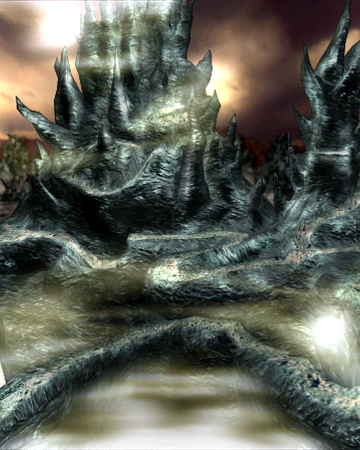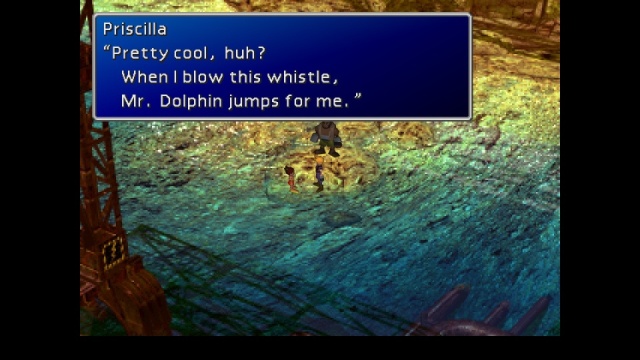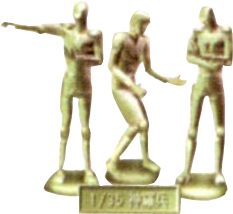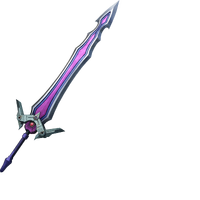Final Fantasy VII Myth & Materia: “[Square]! [Circle]!”
7 min read![]()
“…baleful Juno in her sleepless rage…”
-Aeneid
As if stirred up by the story he told in Kalm, Cloud’s inner dialogue from the flower bed in the slums picks up again at the inn in Junon:
…That reminds me.
Cloud
You again?
…Who are you?…You’ll find out soon. ……But more importantly, 5 years ago…
Cloud
5 Years ago… Nibelheim?When you went to Mt. Nibel then, Tifa was your guide, right?
Cloud
Yeah… I was surprised.But where was Tifa other than that?
Cloud
…I dunno.It was a great chance for you two to see each other again.
Cloud
…You’re right.Why couldn’t you see each other alone?
Cloud
…I don’t know. I can’t remember clearly…Why don’t you try asking Tifa?

The last we saw of Tifa in Cloud’s story, she was thrown down the stairs in the anteroom of Jenova, and carried out of the fray by Cloud. She reminded him of his promise then, just like she would years later in the aftermath of his first mission with AVALANCHE. And yet throughout his story in Kalm she is silent. Before he has a chance to ask her about it, the music of a band playing in the city above filters down to the sleepy seaside village, signaling that it’s time to hurry along. The hero and maiden motif brought to the fore whenever Tifa thinks of Cloud’s promise gets a variation in the party together having saved Priscilla from the sea serpent. The girl is recovering, rewarding her saviors with a Summon Materia; whereas Cloud’s carrying Tifa to relative safety in the past is more ambiguous, since we still don’t know yet what happened next, how the two of them made it out alive. The crystallization of life and energy represented by Materia and memory alike, juxtaposed for us here, will be modified much later in the image of the fluid Lifestream of the unconscious before we learn the truth.
For now there’s a parade of memorable images in store in upper Junon: the majestic airship, beside which our character is dwarfed; the Shinra locker room, where Cloud gets back into his familiar old uniform; the giant gun poised above the sea, with its funicular from which Rufus will descend to take in this show of authoritarian might put on for his benefit; finally, a literal parade of his own. With the march music blaring, the banners unfurled, the tinges of Shinra’s fascism are more overt than ever. Behind the showy veneer, though, there are some important tidbits of information and items to be found, too. In a backroom, ghosts or holograms talk about extreme limit breaks. Toy 1/35 Soldiers and stat-boosting Sources are scattered through the town.
After that surreal, long-range boss battle against the sea monster on the once-beautiful beach, where Cloud and his companions played the traditional RPG hero–coming into a new town and saving the day–here he is thrust back into the role of the faceless SOLDIER.

The playfulness and the politics are linked in the image of the whistle. It’s one with a long and rich video game history, thinking back to the warp whistles in Zelda (NES) and Super Mario 3. Curiously, just as in those two games where the whistle warps Mario forward to new worlds but brings Link back to the start of the dungeon, here in FFVII the same sound plays two opposite roles. First Priscilla gives Cloud her whistle to have the dolphin help him jump up to reach the upper town. Then when Cloud changes into the SOLDIER outfit and takes part in the parade, it’s the little Commander who’s blowing the whistle to keep time in the march, and calling out to his men to perform all the different moves with the rifle. So Cloud sort of becomes the dolphin, responding to the whistle. Of course we’re free to ignore the whistle, not do any of the commands, but we get rewarded if we do a good job. Pavlovian in our way, we naturally like to get a high score, or to imitate and please the higher status individuals to whom our attention is drawn (much to our chagrin). In this case, it’s the President, along with the announcers and their viewers watching the parade on TV, commenting on the player’s performance as Cloud playing the marching SOLDIER.

We’re separated from the rest of the party for now, and can’t communicate with them since Barrett points out the PHS will break if it gets wet. So Cloud’s on his own from when he starts climbing up the high voltage pylon to the end of the parade, hiding in plain sight. He just had this major victory, and now it’s followed by a major regression as he’s forced to fit back into a role he had discarded. Again, we’re rewarded for doing so with prizes like HP Plus Materia or a sword with double Materia growth if we play the role well. Is this the game taunting us, miniaturizing Cloud like the 1/35 Soldiers that we find?

But in finding those, we also find the Mind Source, Speed Source, and Power Source; by exploring even in the midst of what looks like a regression (bearing in mind that for Cloud and the player at this point, the truth of his time in SOLDIER is still blocked from his memory), we find the seeds of incredible strength. He’s the only one in our party at the moment, so most likely we’re going to use those things on him. Perhaps it’s not so much a regression, then, as a humbling–not the 1/35 Soldier, but the larger perspective showing us how small Cloud is beside the airship. He’s acting the dragon-slaying, life-saving hero, but he’s not yet capable of fully embodying that role. He can only do it for a short amount of time. Immediately after, the voice in his mind comes back in with very well-founded doubts about who he really is. So very quickly he, like any one of us, can be knocked back out of the archetype of the hero, back into mundane, normal life, like waking from a dream. Which, again, is healthy! For in contrast with this humbling of Cloud and the player, we see that the legend of Sephiroth is just getting bigger and bigger. He’s said to have killed a few people at Junon, whereas we don’t fight a single battle.
So we’ve yet to see what our shiny new Shiva Summon or Force Stealer can do. Taken together, though, they suggest something interesting about Materia growth. As we saw, Sephiroth, at least in Cloud’s eyes, had completely MASTERed all of his Materia–good for him. We don’t know yet entirely what that means, we haven’t got far enough into the game to MASTER the Materia our party has managed to find. Yet we might note here that some of our Materia has begun to level up, and that this has different effects for different types. Green Magic Materia teaches stronger spells, and blue All Materia affects the linked spell more than just once. Summons, we’ll see, are similar: at first we can only call on our Chocobo or Shiva once per battle. That’s probably plenty for most random encounters, but as we level them up, we can bring the Summoned god or monster back for more turns, say in a tough boss fight. It’s almost like the ability to summon up and take heart from a good memory or words of encouragement in a dire situation. After all, it was a moment when Cloud acted heroically, saving Priscilla, that conferred Shiva on us to begin with. It was when he was playing his RPG hero role well, talking to everyone and checking everything, that earned him the Choco/Mog Materia. Just as we MASTER the Materia by being able to Summon it more often, perhaps we become more capable of summoning in ourselves the capacity to act heroically. Maybe some day we may even master it, as that heroic persona becomes second nature.

What about the sword, though? The different tiers of prizes for the parade reflect a hierarchy of strategies at our disposal: from items, which we can use once and then they’re gone, to Materia which grows with us, of course, but then to the thing which causes it to grow twice as fast, the sword of the intellect, if you like. As a gift for properly playing our part in humble disguise, we gain the means to train much more efficiently at our leisure, so that our discipline will be the sooner rewarded with results. As if, by devoting time and care to a restrained and circumscribed activity in the short term, we can see the promise of free expression awaiting us before too long. At a stroke, linear growth, which is plodding and methodical and discipline-heavy and not all that fun, gets converted to the exhilaration of the exponential curve.
![]() Wesley Schantz (the Bookwarm Mage) coordinates Signum Academy, writes about books and video games, and teaches in Spokane, WA. FFVII Myth & Materia comes out of his podcast series with Alexander Schmid and Vincent Reese.
Wesley Schantz (the Bookwarm Mage) coordinates Signum Academy, writes about books and video games, and teaches in Spokane, WA. FFVII Myth & Materia comes out of his podcast series with Alexander Schmid and Vincent Reese.
Did you enjoy this post? Consider becoming a Warrior of Light and join us in promoting honesty and quality to games writing through thoughtful, long-form critiques. We’re building a future for games writers to get paid and find a fairer and happier alternative to mainstream coverage and culture. See our Patreon page for more info!
